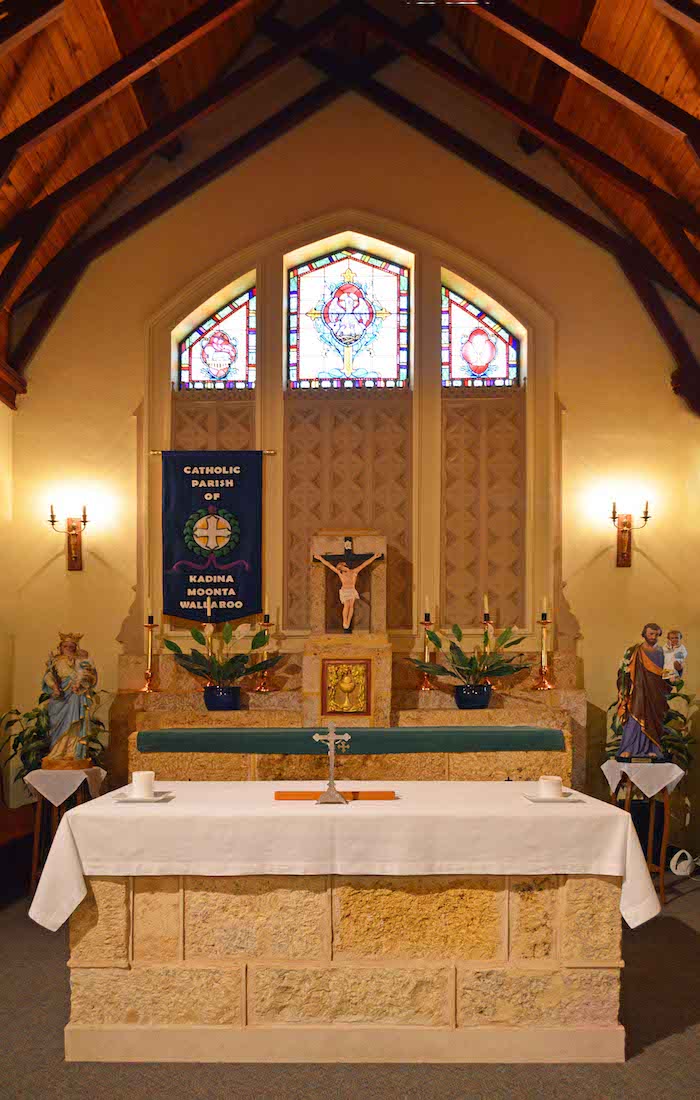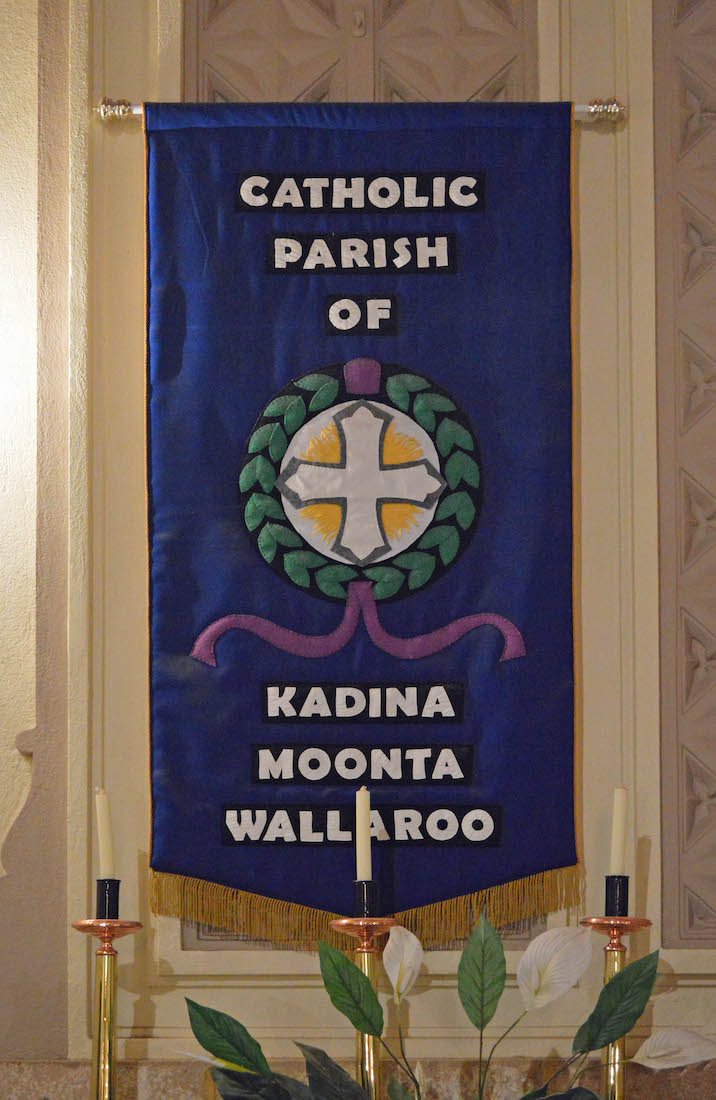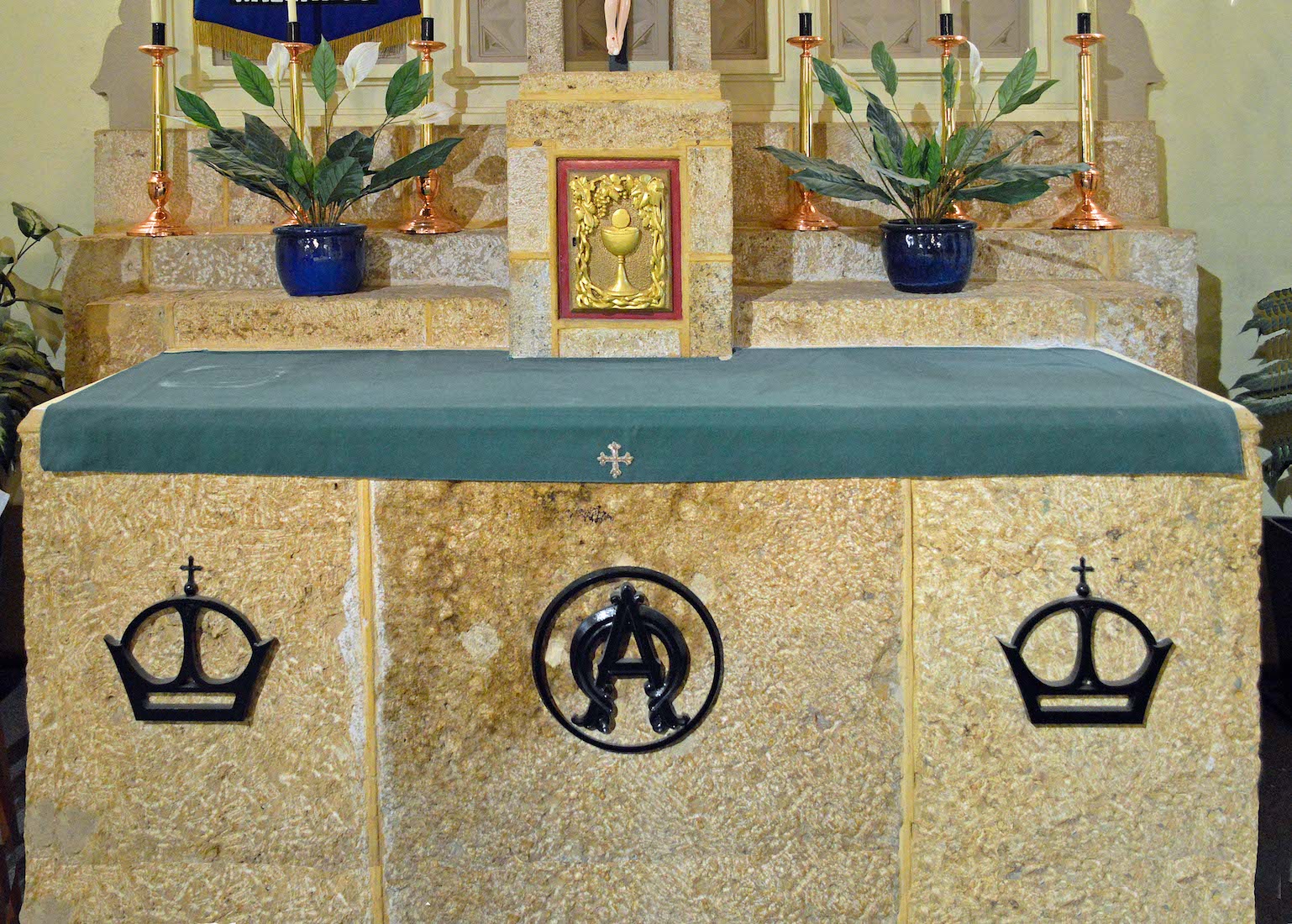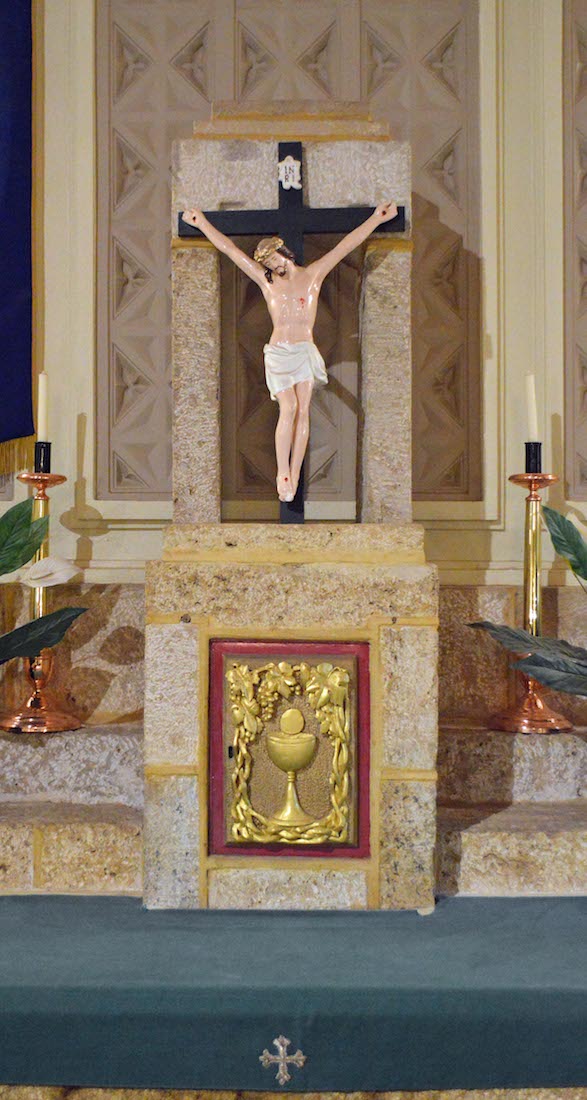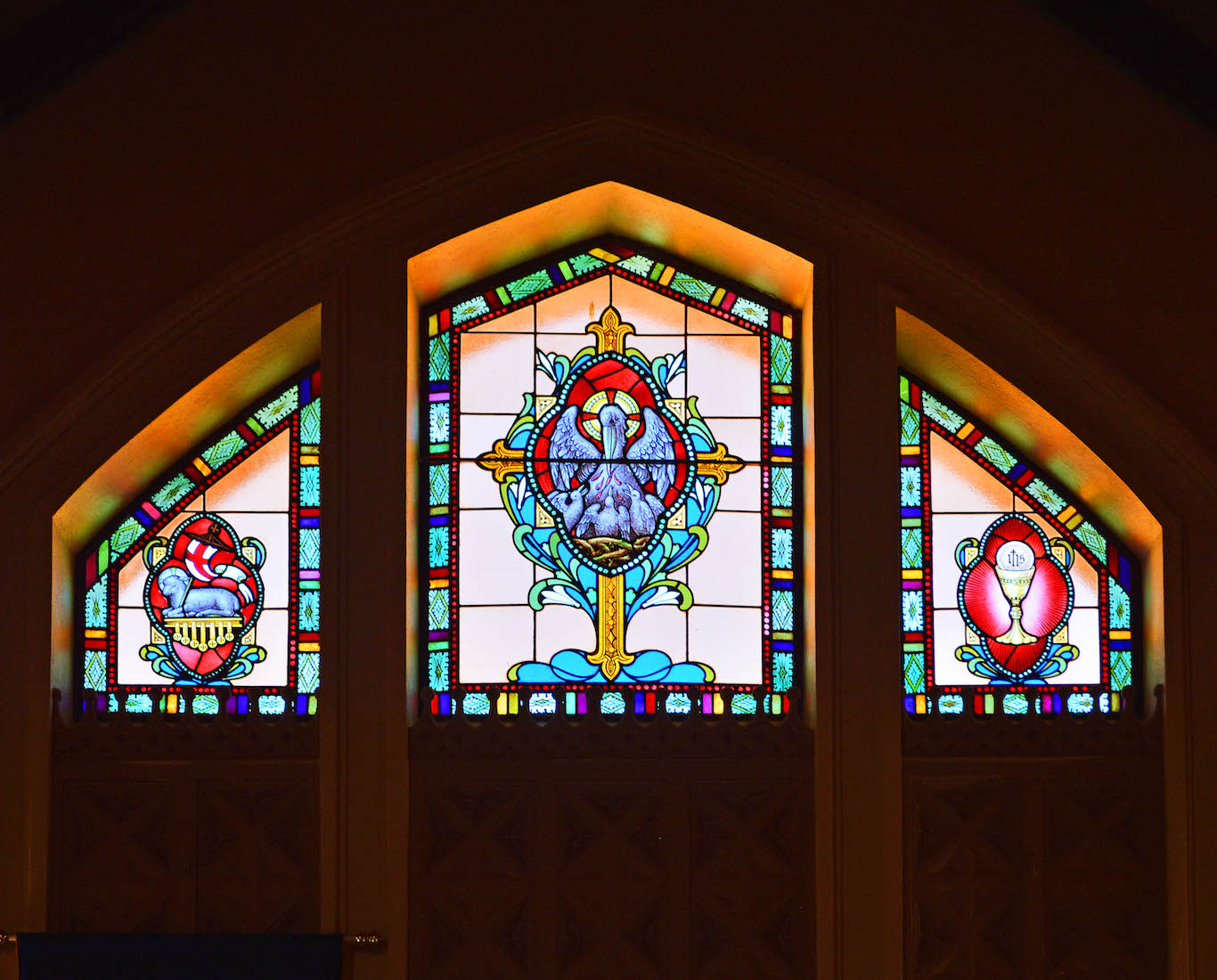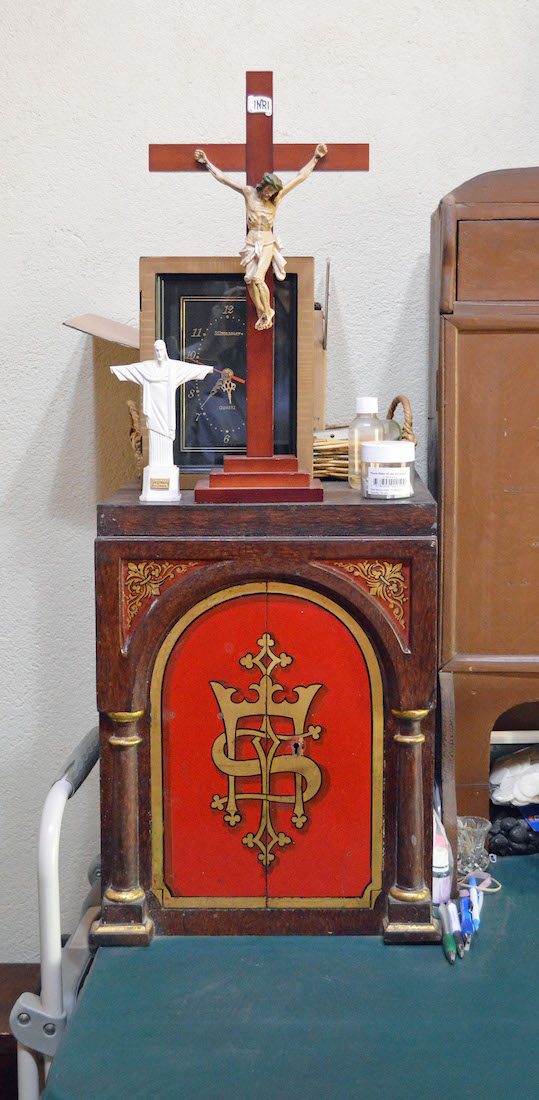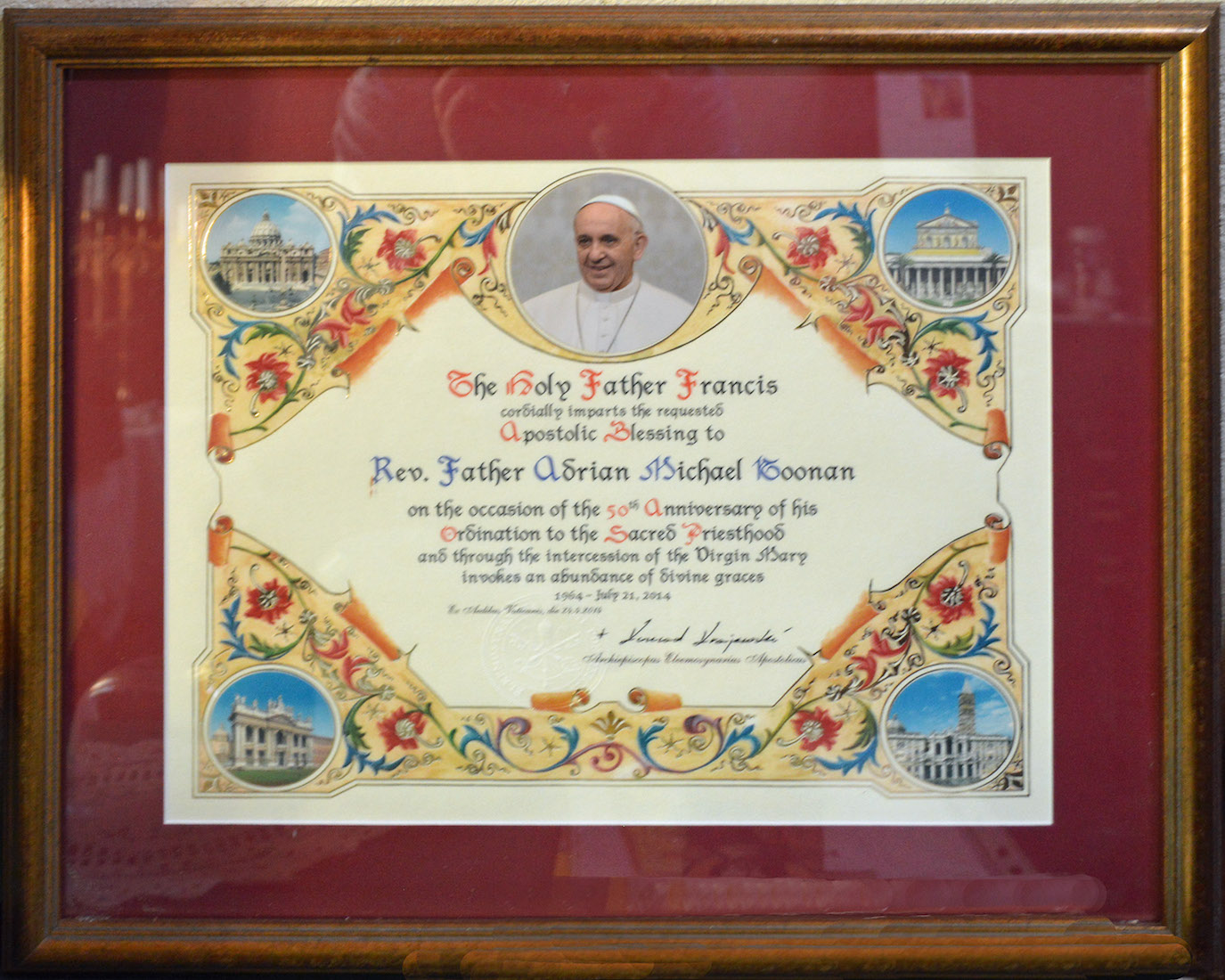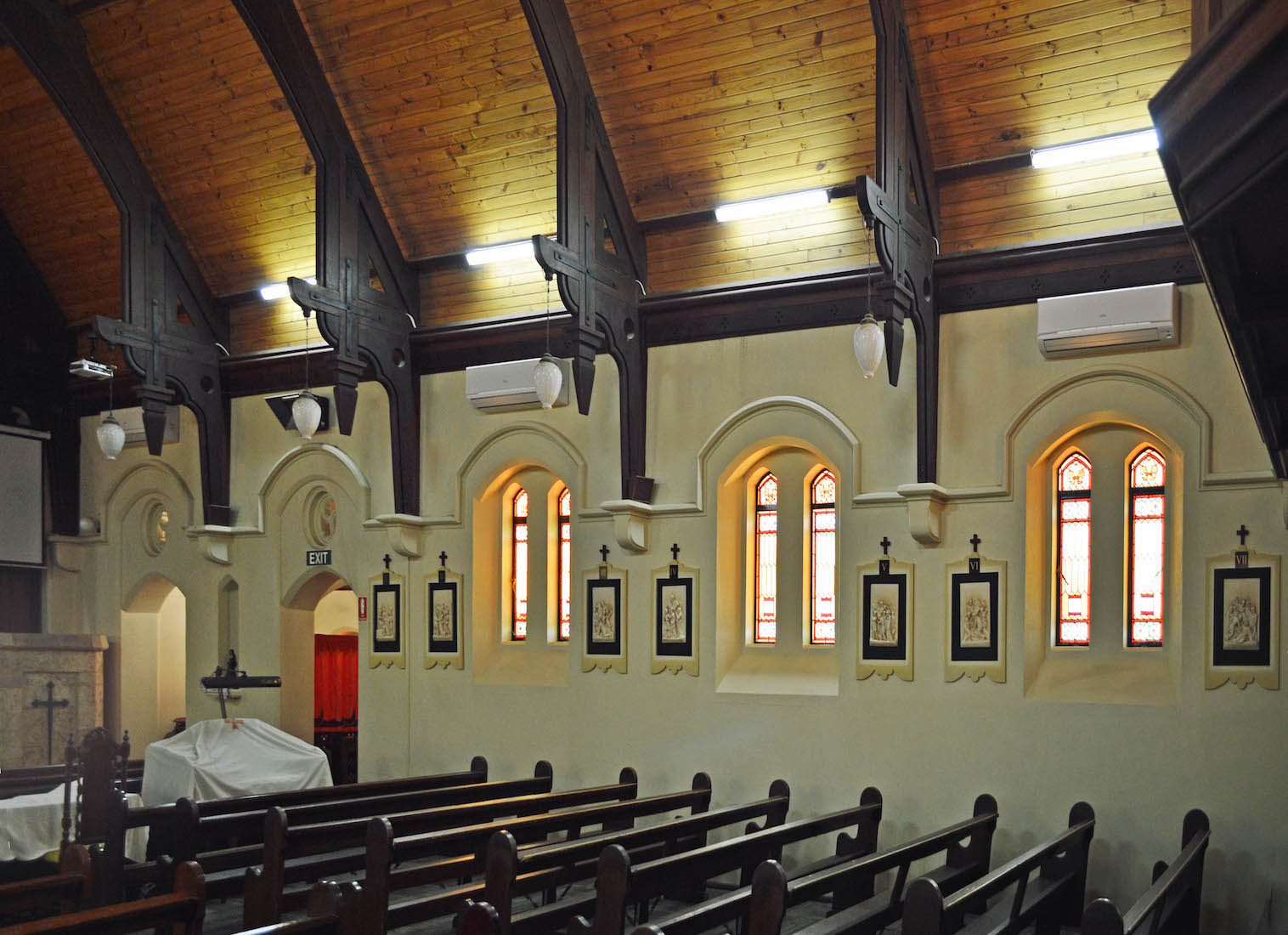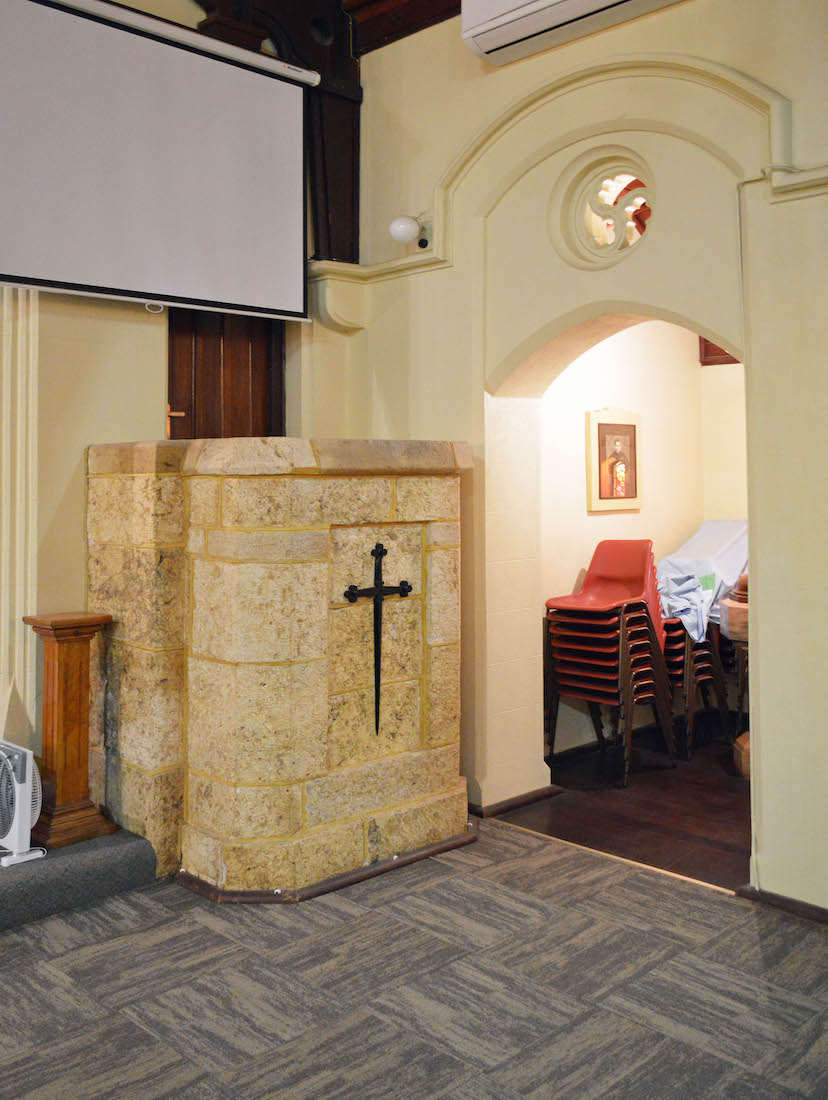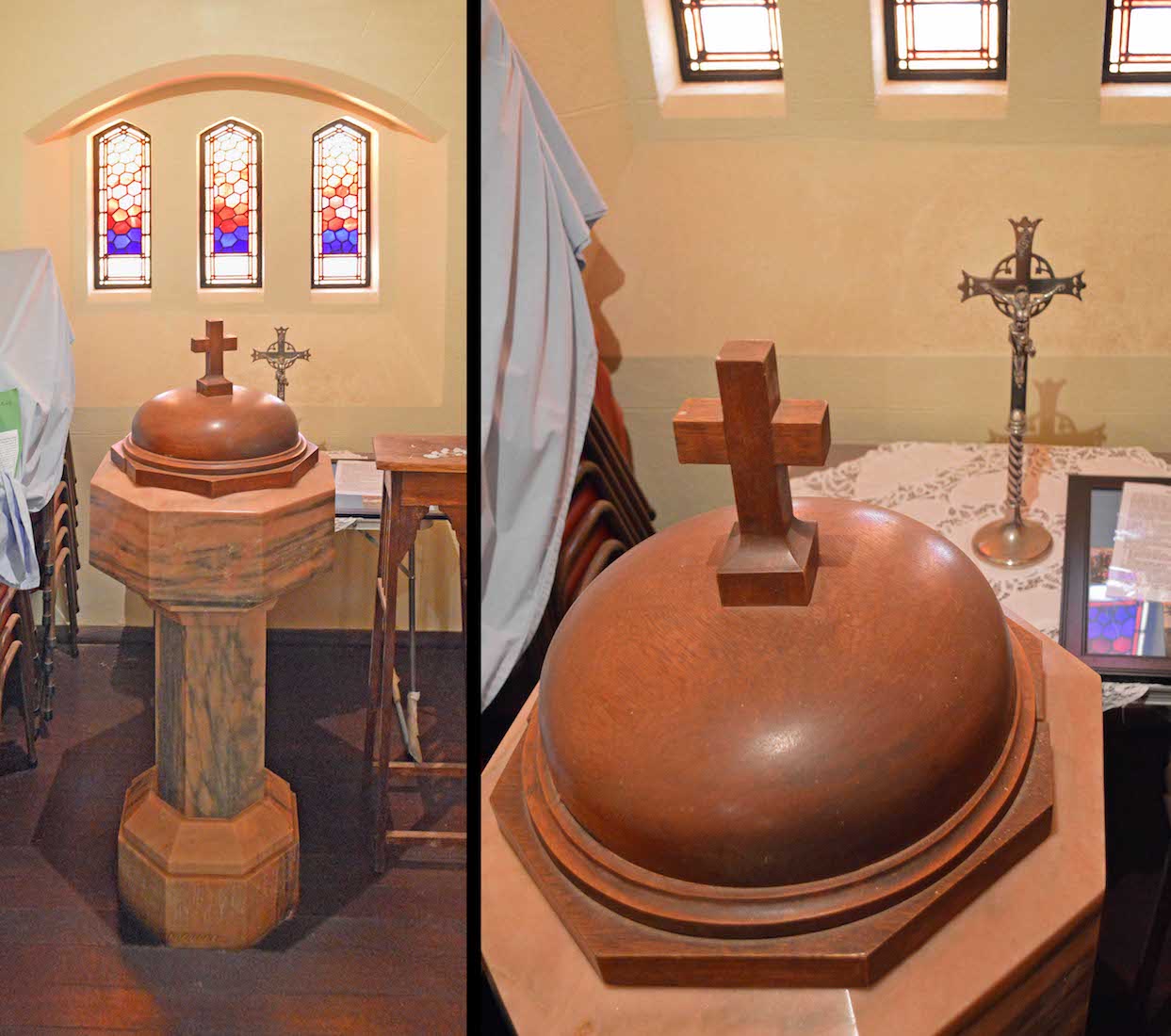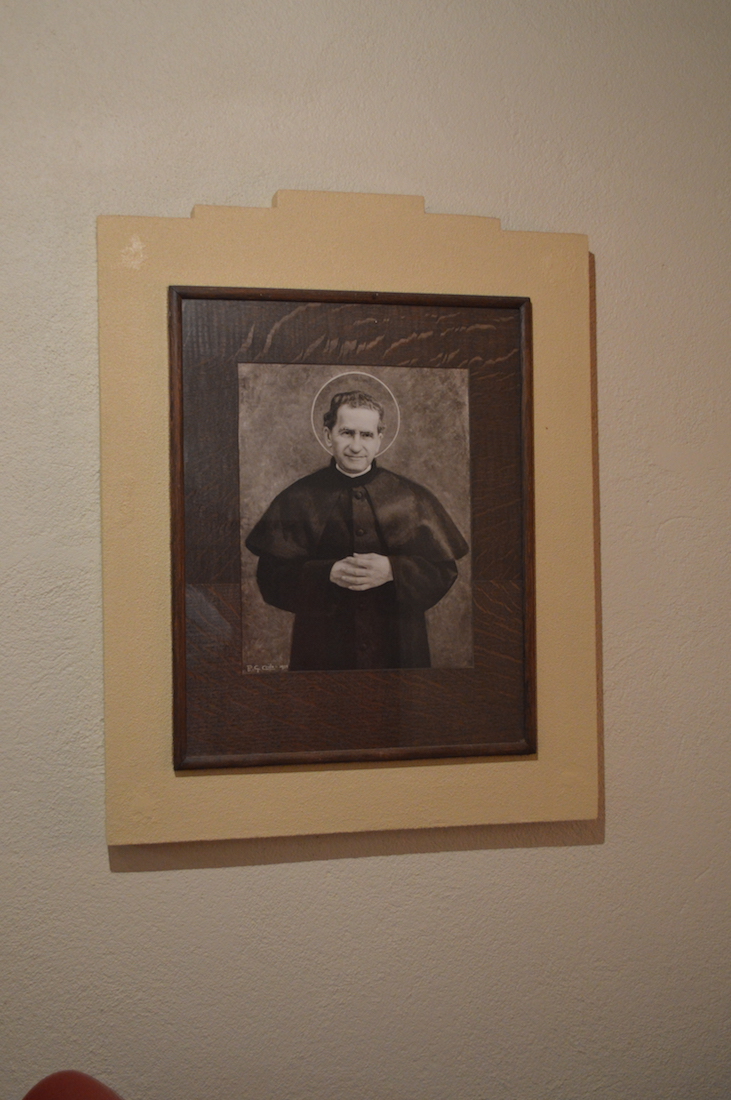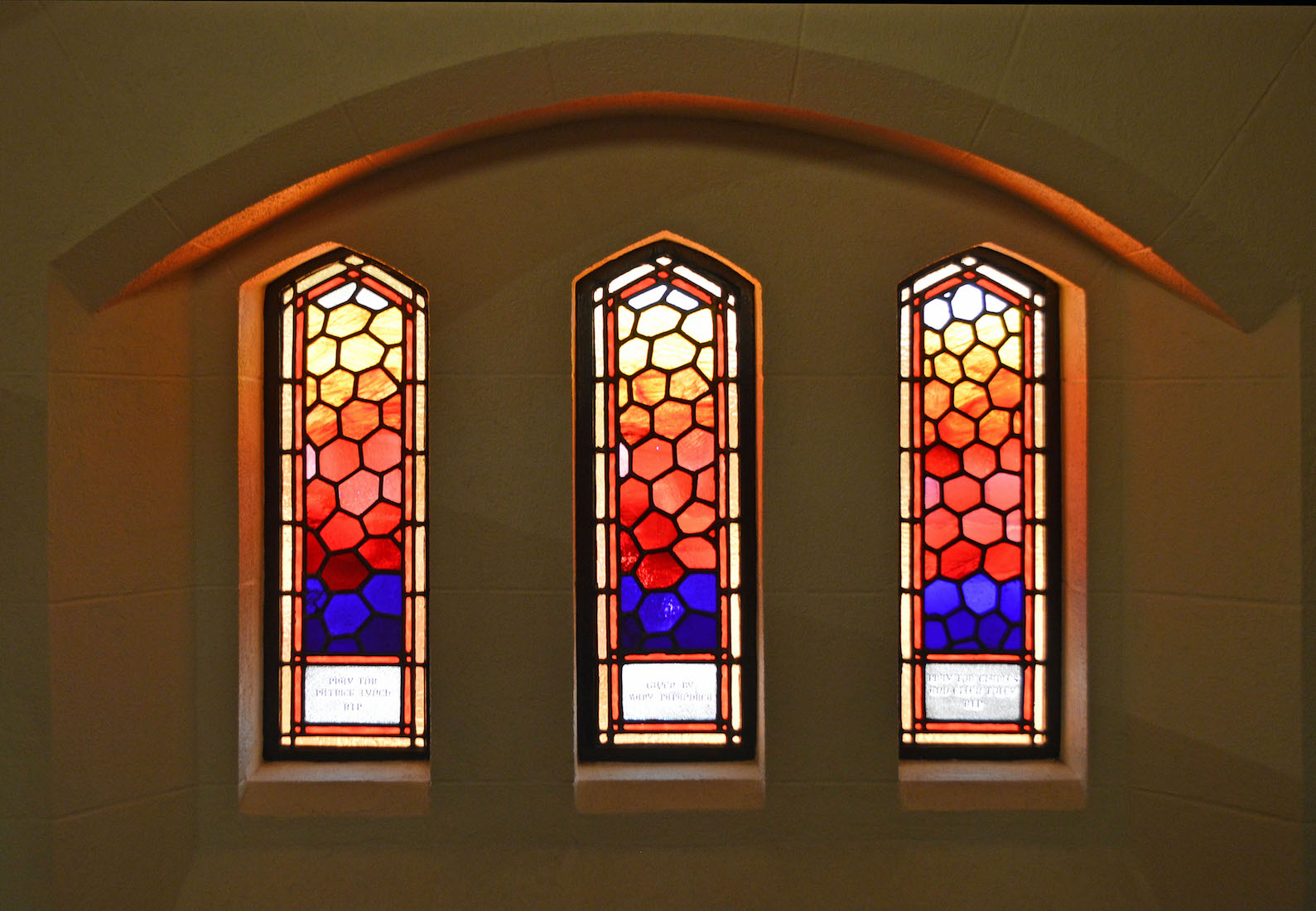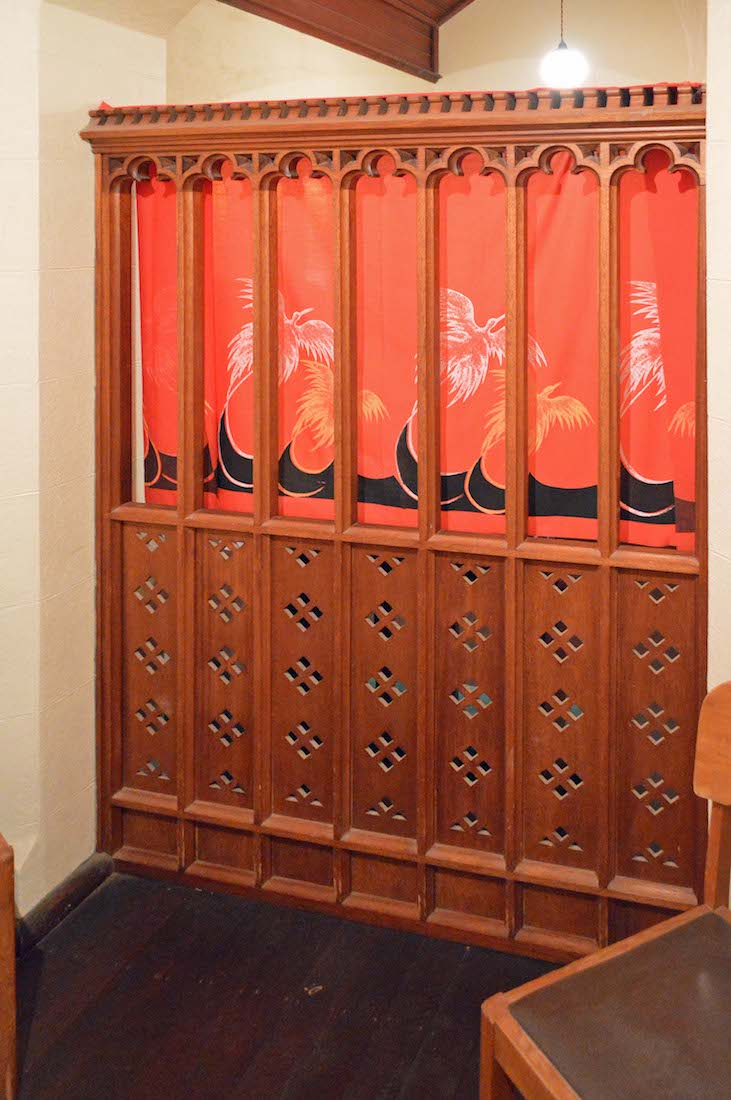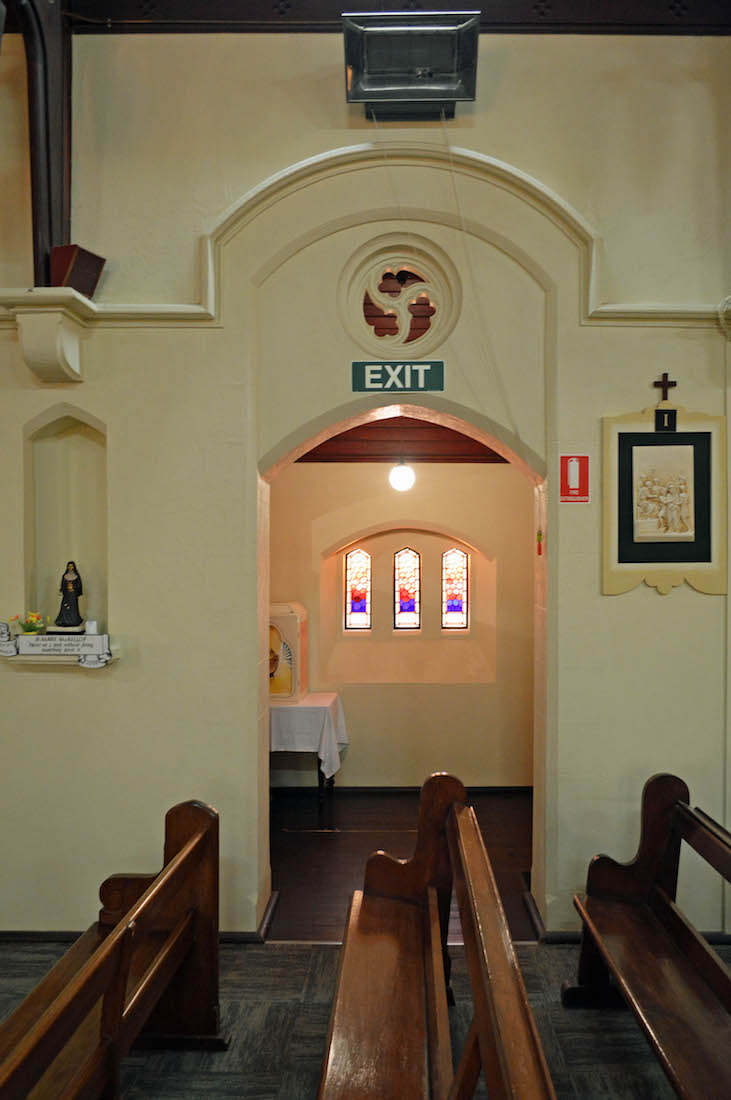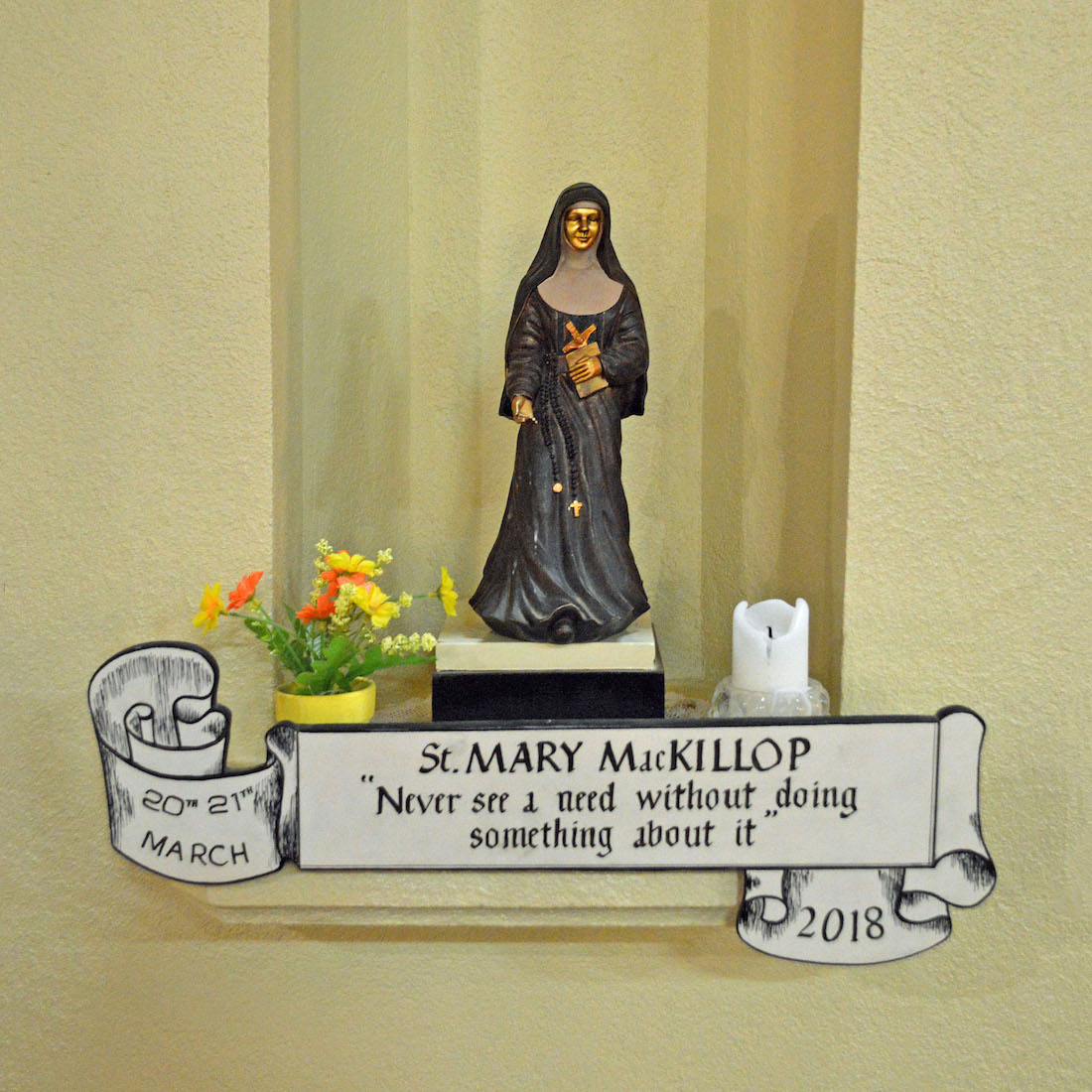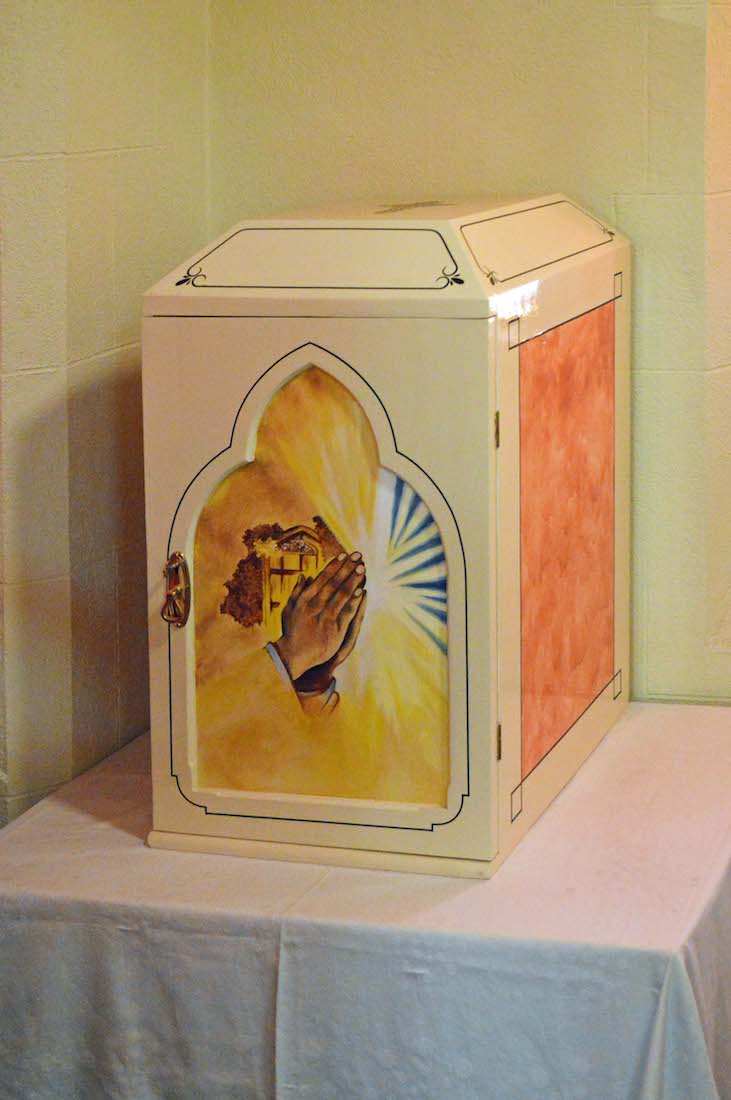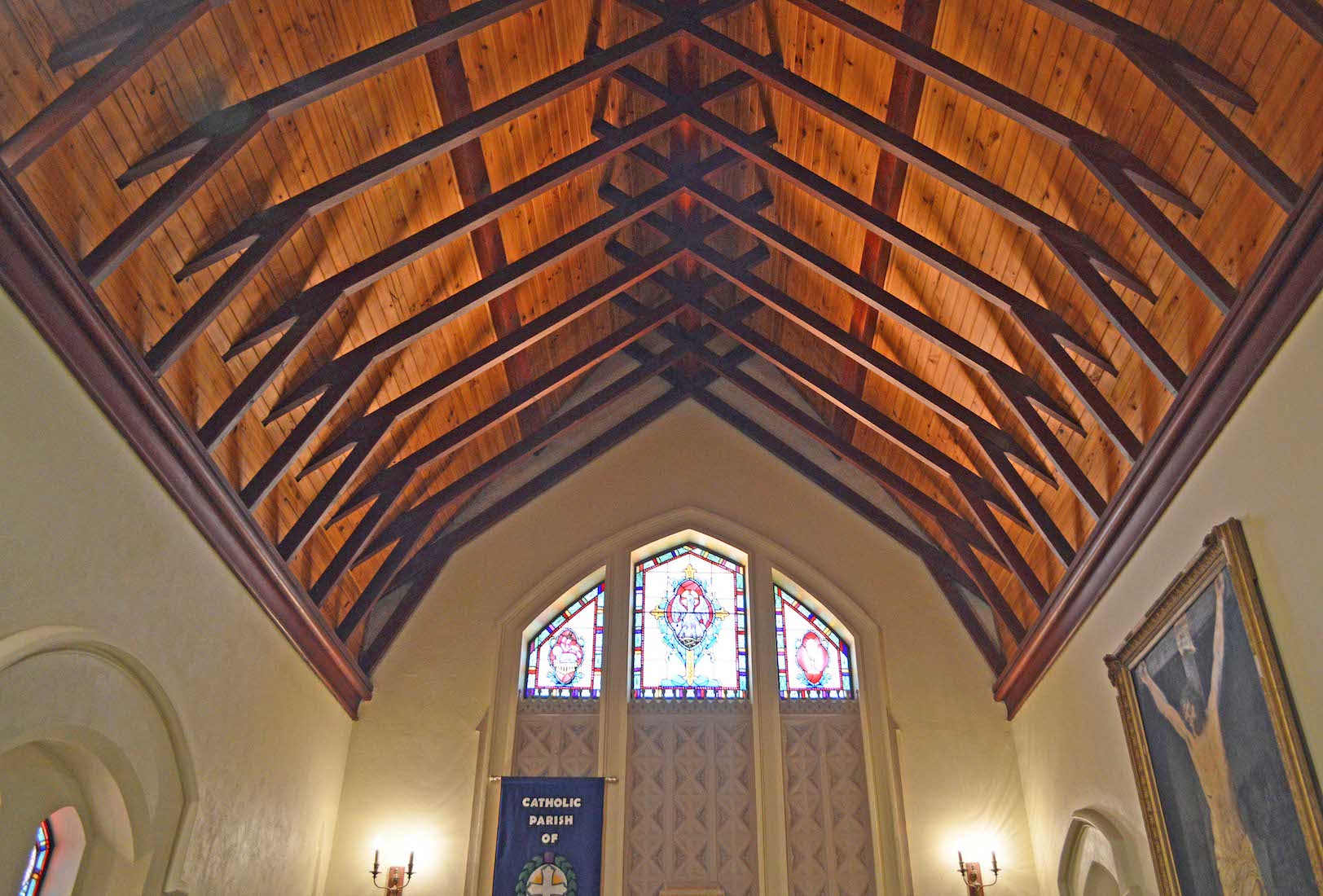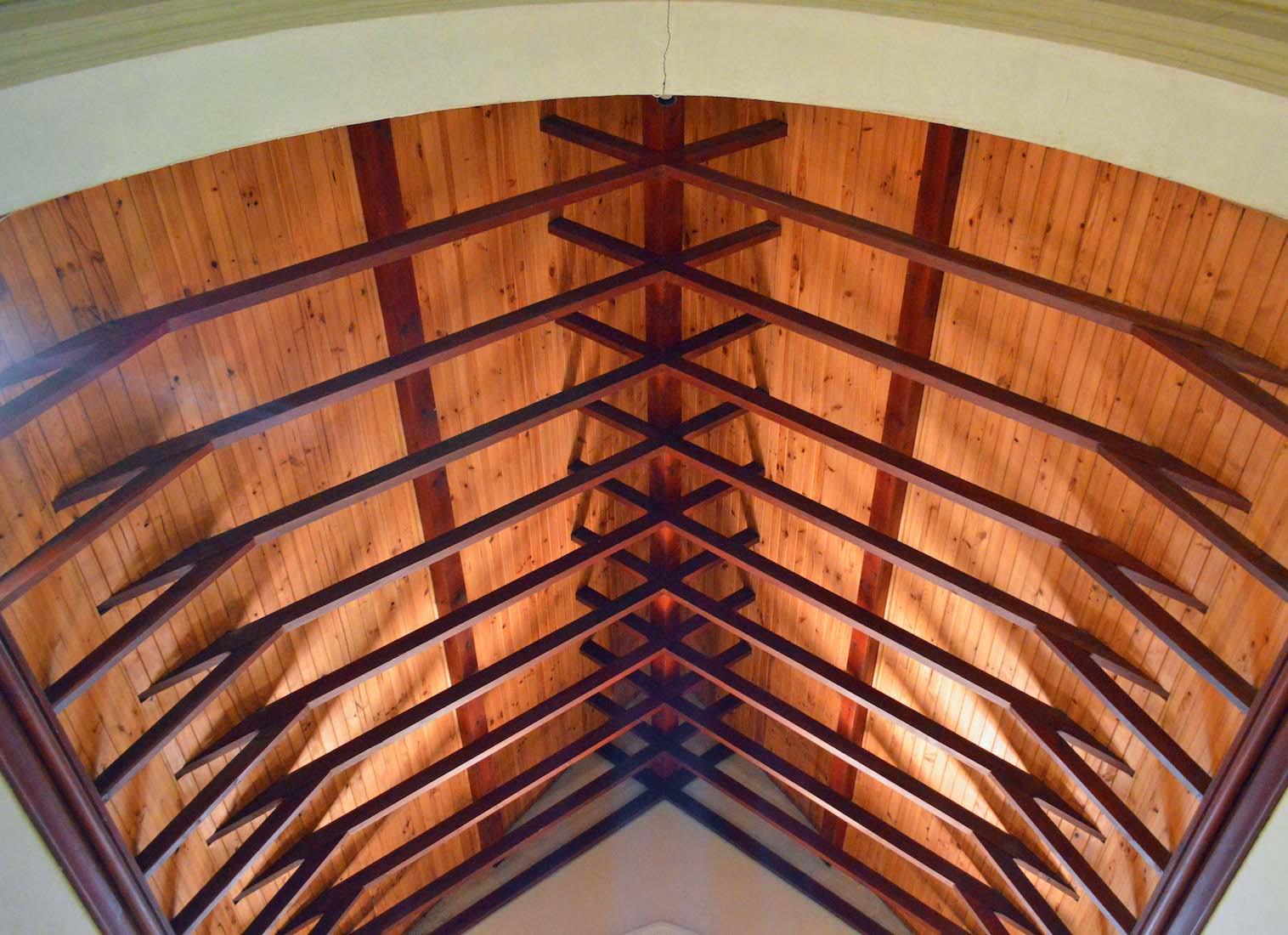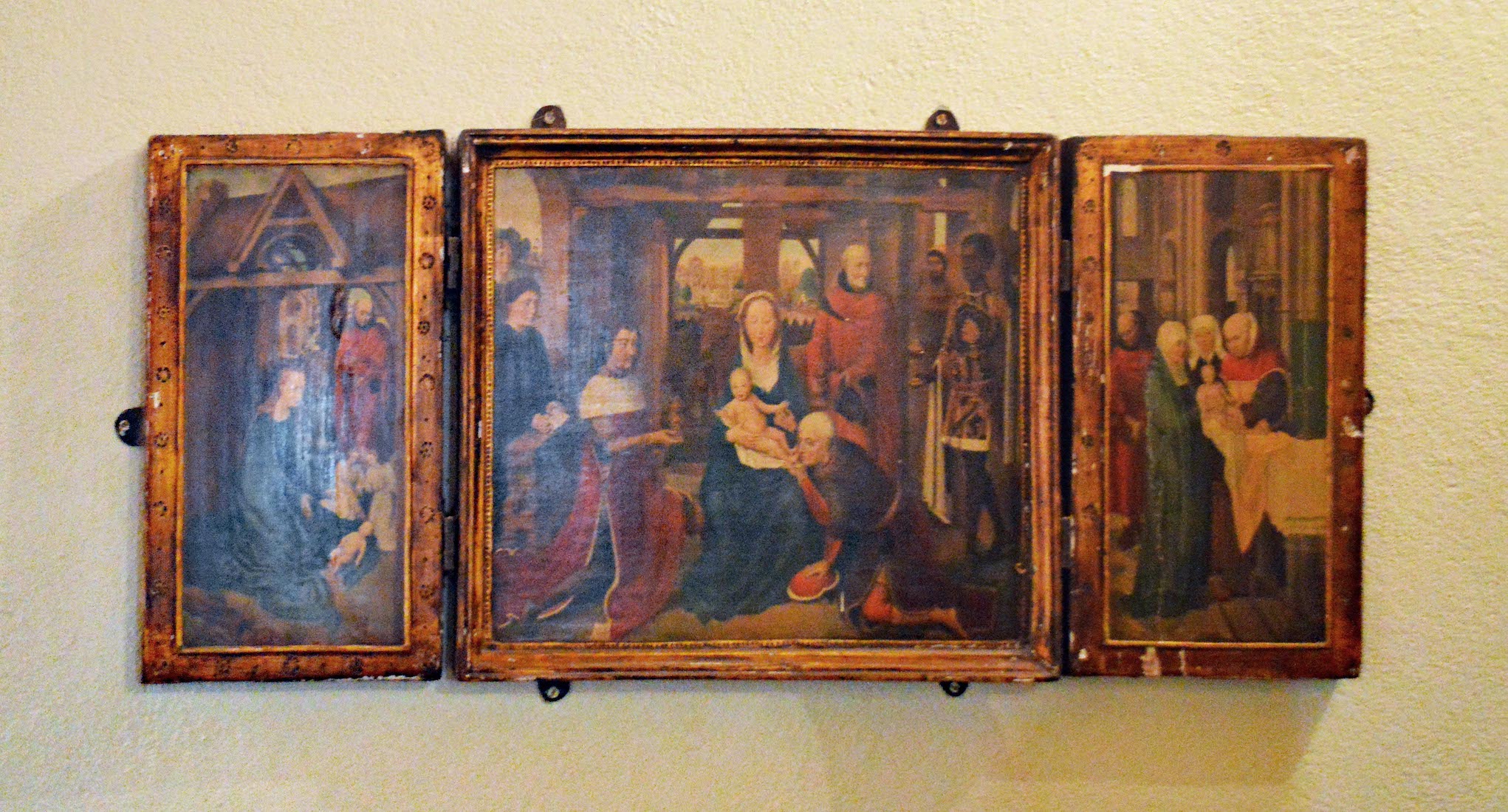
On the North wall is a triptych showing the Nativity. This is a copy of the Floreins Triptych, 1479, by Hans Memling, in Sint-Jan museum, Bruges. In olden times triptychs were favoured by priests, as they could be folded up for safe travelling. INDEX
43. PARISH BANNER
The parish banner shows the linking of the three towns of the Copper Triangle – Kadina, Moonta and Wallaroo.
44. HIGH ALTAR
Looking at the front face of the high altar we observe two crowns and an Alpha – Omega symbol for Christ. Alpha and Omega are the first and last letters in the Greek alphabet, leading to the appellation to Christ: the Beginning and the End (Revelation 22:13).
45. TABERNACLE AND CRUCIFIX
On the narrow high altar is a tabernacle with a crucifix on top. The tabernacle is where the reserved Elements of the Eucharist are stored: Elements that have been previously blessed (generally on a Sunday) and are available for use during the week.
46. WEST WINDOW
It appears that the original intention was to have a full length window on this wall, but the western orientation probably made this impractical. The glass panels show three Christian symbols. At centre is the pelican, feeding its chicks with blood drawn from its breast. At left is the Lamb with banner, and at right the Elements of the Eucharist.It appears that the original intention was a to have a full length window on this wall, but the western orientation probably made this impractical. The glass panels show three Christian symbols. At centre is the pelican, feeding its chicks with blood drawn from its breast. At left is the Lamb with banner, and at right the Elements of the Eucharist.
47. SACRISTY ITEMS
The sacristy leads off the South side of the sanctuary, and, as a week-day visitor, it was through here that I entered. In one corner stands this old tabernacle with a crucifix, and a small ‘Christ the Redeemer’ on top.
48. SPECIAL CERTIFICATE
Also in the sacristy is this Apostolic Blessing from Pope Francis, which is probably relatively rare, but well deserved here. [This is a personal award, but also of general interest. I requested permission to include it here.]
49. SOUTH NAVE WALL
Leaving the sacristy, we return to the sanctuary and back to the nave. This is a view of the South wall of the nave. At left is a solid stone pulpit, and then two doorways. Between the doorways is a niche containing a small sculpture. Then to the right is an alternating sequence of windows and Stations of the Cross, as on the North wall of the nave.
50. PULPIT
In the Southeast corner of the nave stands this large stone pulpit. This is unusual in a Catholic church: frequently there is only an ambo which serves the purposes of both pulpit and lectern.
51. PULPIT DETAIL
The front of the pulpit features a sharply pointed sword. The imagery brings to mind ‘the sword of the Lord and Gideon’ (Judges 7:20), and also the sword of the Spirit, spoken of in Ephesians 6:17. We move through to the small baptistry.
52. BAPTISMAL FONT
The baptismal font is set apart in a small room adjacent to the pulpit. The rite of baptism is regarded as an initiation into the Church, and in fact the Christian life. As mentioned earlier, the baptismal font was given in memory of the Fennescey family.
53. BAPTISTRY PORTRAIT
This anonymous Catholic saint looks down benevolently over the font ...
54. BAPTISTRY WINDOW
The windows have an abstract pattern reminiscent of the West porch windows. Small memorial texts can be seen at the bases.
55. BAPTISTRY SCREEN
The baptistry is separated from the South porch by this attractive screen.
56. TO THE SOUTH PORCH
Returning to the nave we next face the South porch. The first of the Stations of the Cross can be seen at right, and there is a small statue at left.
57. ST MARY MACKILLOP
The small statue is of St Mary MacKillop. Below the name is the practical advice: ‘Never see a need without doing something about it.’ There is a date too: 20th, 21st March 2018. The year 2018 is the sesquicentenary of the year the Josephite Sisters began their work with children’s orphanages in South Australia.
58. SOUTH PORCH TABERNACLE
This colourful tabernacle is for the storage of reserved Eucharistic Elements. It stands in the South Porch.
59. SANCTUARY ROOF
We return to the main body of the Church. A prominent feature of nave and sanctuary is the wooden roof construction.
60. SANCTUARY ROOF DETAIL
The sanctuary roof is a simple gable, artistically supported by beams which cross over at the centre and braced at the ends.


